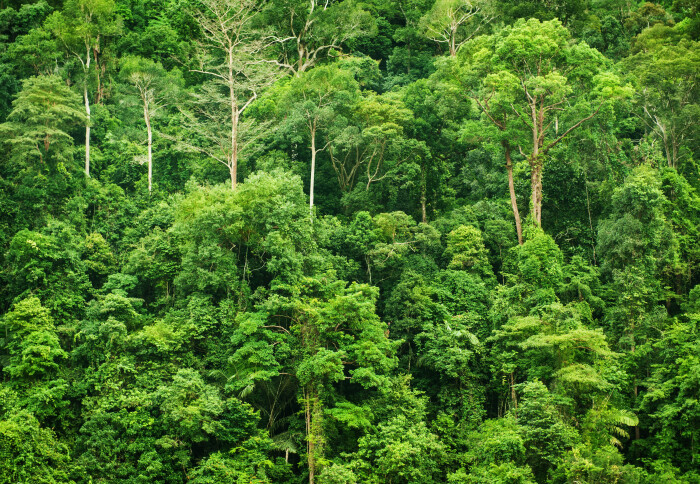Financial tools needed to pay $200 billion nature restoration in Southeast Asia

Tropical green forest landscape view, National Park, Malaysia. Credit: Shutterstock
Well-structured capital market instruments such as sustainability-linked bonds (SLBs) can help scale up investments in nature restoration projects.
This was the main finding from a new report from Imperial College Business School. The report is published at a time of both ecological and economic uncertainty for the Southeast Asian region, as climate change continues to disproportionately impact Asian economies – many of which are underpinned by nature.
Researchers at Imperial’s Centre for Climate Finance & Investment (CCFI) have identified a number of financial instruments available to support the funding of much-needed nature restoration projects in the region – notably including SLBs.
The report, which is authored by Dr Pernille Holtedahl, a Research Fellow at the CCFI, and supported by the Singapore Green Finance Centre, explores, among other things, the use of SLBs in funding restoration projects in Malaysia. The annual cost of nature restoration across Southeast Asia could total $200 billion, demanding greater private sector involvement and these capital market instruments are one way to entice fixed income investors to support the Malaysian government’s biodiversity ambitions.
"Climate change is already impacting Southeast Asian economies and together with the risk of ecosystem collapse, provides a strong motivation for investing in nature." Dr Pernille Holtedahl Research Fellow, Centre for Climate Finance & Investment
SLBs, of which some US$73 billion were issued globally in 2022, tie organisations to certain sustainability commitments via penalties that are incurred for targets missed. The researchers propose the use of credible and verifiable key performance indicators (KPIs) in administering these SLBs.
Alongside biodiversity-linked SLBs, the paper, Nature Investment as a Response to the Climate Crisis: Opportunities in Southeast Asia, stresses that a broad range of financial instruments are available for use and offers viable avenues for generating private sector investment in the region as it looks to fund crucial nature action projects.
As nature investments offer both a logical and powerful response to the climate and nature emergency in Southeast Asia, the report stresses the breadth of choice available via financial and nature market instruments.
Finance for mangrove projects
The report also highlights a collection of mangrove restoration projects which offer asset owners, insurance companies and impact investors cost savings or financial returns. It notes, however, that while these projects represent a potentially powerful nature investment opportunity in Southeast Asia, scalable business models remain in their infancy.
Finally, Dr Holtedahl advises against overreliance on carbon credits to provide the investment case for nature, instead encouraging long-term incorporation of nature benefits into broader corporate investment decisions.
Reflecting on the findings of the report, Dr Holtedahl, said: “The opportunities available to encourage private investors to consider nature investments when making financial decisions are manifold. Climate change is already impacting Southeast Asian economies and together with the risk of ecosystem collapse, provides a strong motivation for investing in nature. This paper has framed the case for nature investing from both a public and private perspective.
She continued: "We have highlighted that investors stand to benefit greatly from nature investments – whether it be for resilience, portfolio diversification, or cost reduction efforts. We hope that this report offers some insight into the potential entry points for investors in the region."
The report is available to download from the Imperial College Business School website.
Article text (excluding photos or graphics) © Imperial College London.
Photos and graphics subject to third party copyright used with permission or © Imperial College London.
Reporter
Laura Singleton
Communications Division